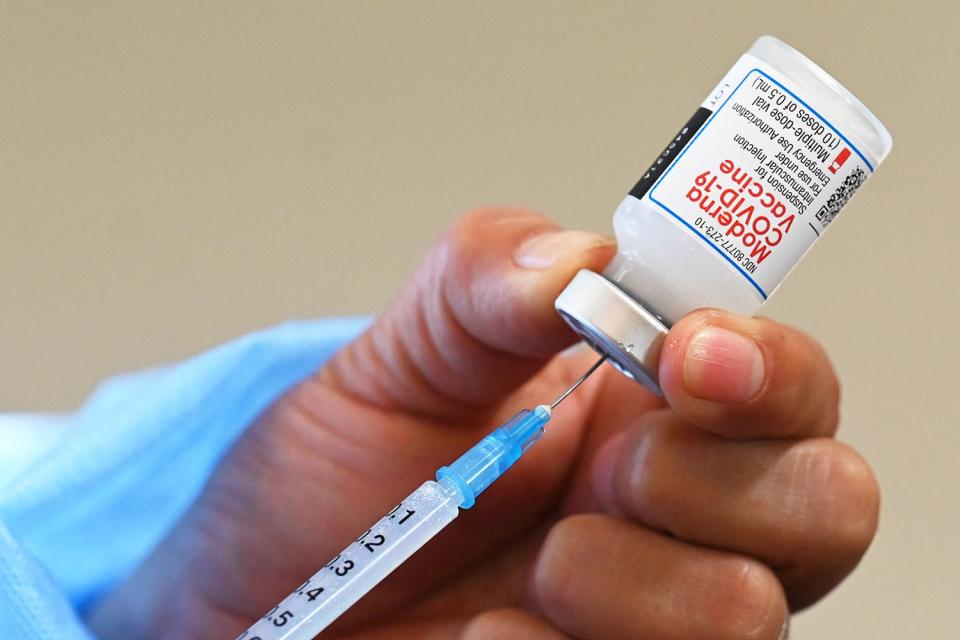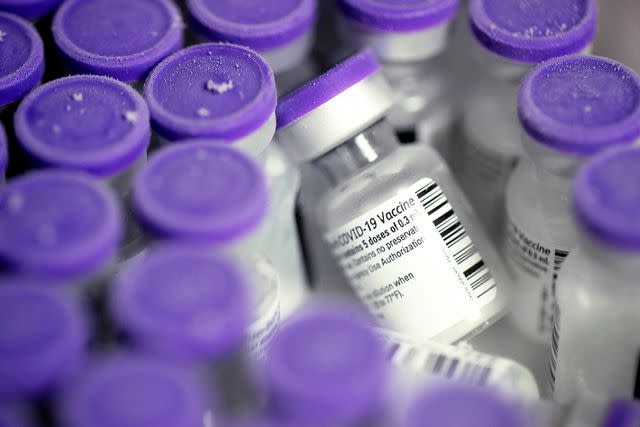Man Allegedly Received Over 200 COVID-19 Vaccinations — and It Didn't Negatively Affect His Immune System, Researchers Say
"We did not find any indication for a weaker immune response, rather the contrary," said Katharina Kocher, one of the leading authors of the study

Johan Ordonez/AFP/Getty
Nurse prepares COVID-19 vaccination injectionA man in Germany went above and beyond to make sure he wouldn’t get COVID-19, prompting scientists to study the effects of hyper-vaccination.
The 62-year-old man — who allegedly received the COVID-19 vaccine 217 times within 29 months — was the subject of a new study published by The Lancet Infectious Diseases journal. Researchers wanted to see how hyper-vaccination affected the body.
“We learned about his case via newspaper articles,” Dr. Kilian Schober from the Institute of Microbiology – Clinical Microbiology shared in a news release. “We then contacted him and invited him to undergo various tests in Erlangen. He was very interested in doing so.”
Researchers from the University of Erlangen-Nuremberg in Germany, who conducted the study, said that vaccines contain parts of the virus pathogen in order to teach a person’s cells how to protect themselves and recognize the virus in the future. However, they also noted that if the cells are exposed many times, that can also weaken the immune system and make it unable to combat the virus effectively.
Related: 'The Last of Us' Proposes a Pandemic Based on Fungal Infection — Could that Happen?

Scott Olson/Getty
Photo of COVID-19 vaccination vials“That may be the case in a chronic infection such as HIV or Hepatitis B, that has regular flare-ups,” explains Schober. “There is an indication that certain types of immune cells, known as T-cells, then become fatigued, leading to them releasing fewer pro-inflammatory messenger substances.”
The researchers analyzed his blood test results taken over several years and also got their own fresh blood and saliva samples taken to “determine exactly how the immune system reacts to the vaccination.”
Related: Celebrities Who Have Tested Positive for Coronavirus
They found that the man had a larger number of T-effector cells, which fight against the virus, than people who have gotten the vaccine three times. The fighting cells were also found to be just as effective as those who received three vaccinations. The same went for the Memory T cells, which recall the virus.
“The number of memory cells was just as high in our test case as in the control group,” said Katharina Kocher, one of the leading authors of the study. “Over all, we did not find any indication for a weaker immune response, rather the contrary.”
Never miss a story — sign up for PEOPLE's free daily newsletter to stay up-to-date on the best of what PEOPLE has to offer, from juicy celebrity news to compelling human interest stories.
Their further tests found that the hyper-vaccination also didn’t affect his immune system’s response to other pathogens, leading them to determine that his immune system hasn’t been damaged by all the vaccines.
However, researchers noted that this was just one case studied and that people who undergo the same thing may have different immune system responses, which is why they are keeping their recommendation to the general public of three COVID-19 vaccines.
“Current research indicates that a three dose vaccination, coupled with regular top-up vaccines for vulnerable groups, remains the favored approach,” they said in the release. “There is no indication that more vaccines are required.”
For more People news, make sure to sign up for our newsletter!
Read the original article on People.

 Yahoo Sports
Yahoo Sports 